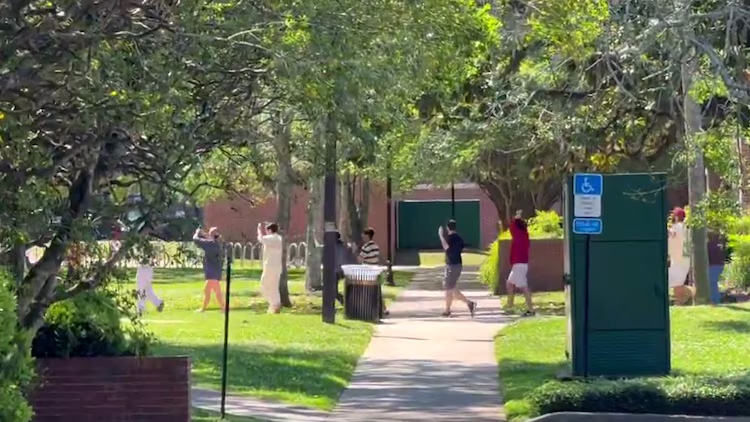Duke eye surgeon makes it his life's mission to cure blindness, reduce human suffering in Africa

DURHAM, N.C. (WTVD) -- Duke eye surgeon, Dr. Lloyd Williams, is on a mission to cure all blindness in Africa. He's even traveled headlong into areas full of conflict to do it.
"One time when we went to South Sudan, two weeks after we were there, a group of people came through and killed 140 people in the village that we were in including patients we had just performed surgery on," Williams explained.
That danger doesn't deter Williams from reaching people in need. He just returned from South Sudan at the beginning of April for his latest trip abroad to treat patients.
Williams is the head of Duke's Global Ophthalmology Program which he began to lead just before the pandemic hit. Now that travel has resumed, Williams spends 8 weeks a year training and working with eye doctors in some of the areas of greatest need in Africa, Asia and Central America to reduce blindness and human suffering.
SEE ALSO | 'Like a stack of pancakes': Doctor removes 23 contact lenses from patient's eye

"I would say that we've been a part of probably 5,000-6,000 surgeries, and about twice as many clinic visits in that time," Williams added.
The three main surgeries Williams performs are for cataracts, trachoma and cornea transplants. The procedures have restored sight and cured blindness for thousands of people. Williams often hand carries donor corneas on ice overseas; he was even instrumental in training the doctors who performed the first organ transplant in Sierra Leone.
"Which is actually a really big step that has been a source of some national pride. Even the president of Sierra Leone has Tweeted about how proud he is of these two surgeons for doing the first organ transplants in their country," Williams explained.
As the son of Lutheran missionaries, Williams grew up in a family devoted to service and understands the dangers of the areas he's serving.
"I'm willing to die to cure blindness in Africa," Williams explained. "Once you get out in the rural areas, there are zero services for the blind. So, for children being blind, it's essentially a death sentence. If somebody goes blind, you lose two or two-and-a-half people out of the workforce because you lose the blind person and then you lose people who now have to take care of the blind person. So, everywhere we go, there are these children that are leading people with a stick. And, once we do cataract surgery for her, he gets his life back, too."
Seeing the impact vision has on others is what gives Williams purpose.

"My life's mission, I would say, is to cure all the blindness in Africa," he said.
Williams's next trip is in May to Sierra Leone where he'll be training two doctors on how to do complex lens-based surgeries and transplants. He also plans to operate on a third local surgeon in need of a transplant in hopes that the doctor can also start operating on local patients again soon.
Click here to learn more about Duke's Global Ophthalmology Program.







